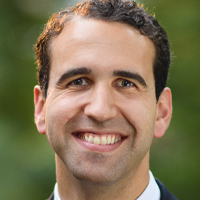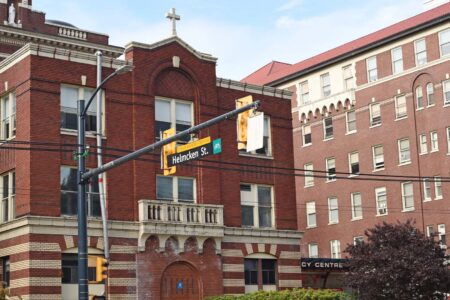
The next chapter in the court battle over Quebec’s Bill 21 – a law that forbids a range of professionals and public servants in that province from wearing religious symbols at work – will unfold in November when Quebec’s highest court considers its constitutionality.
The government of Quebec says that by clothing Bill 21 with Section 33 of the Canadian Charter of Rights and Freedoms – the so-called “notwithstanding clause” – Bill 21 is immune from claims rooted in Charter rights such as freedom of religion. Many commentators agree with this position, even if they believe the law to be disturbingly discriminatory.
However, we take the view that Bill 21 is unconstitutional and that Section 33 does not grant this law passage in our constitutional waters. As groups challenging the law have argued, no government in Canada, federal or provincial, is empowered to enact legislation that mandates religion or irreligion as a precondition for participation in public life. This principle, which existed before the Charter, can not be extinguished by Section 33.
In our view, a core basis for this principle is the constitutional duty of state neutrality toward religion. This duty equally forbids the state from establishing a state religion and from categorically excluding religion from the public square. By excluding many religious citizens from their intended careers, Quebec has unambiguously favoured irreligion and violated its duty of neutrality.
Policy Options coverage: Quebec’s Bill 21
Indeed, in a ruling last year, the Quebec Superior Court judge who largely upheld Bill 21 (due to the notwithstanding clause) noted that it involves “advocating for the non-existence of religion,” the “disappearance of a religious expression,” the “erasure of religion,” and that it “sends the message that people who practice their faith do not deserve to participate fully in Quebec society” (unofficial translation).
This is antithetical to the duty of state neutrality, which seeks not to exclude but to include all religious and non-religious identities in the public square equally, with neither hindrance nor preference. In various cases, the Supreme Court has said this duty requires the state to “[show] respect for all postures towards religion” (S.L. v. Commission scolaire des Chênes), “encourage everyone to participate freely in public life regardless of their beliefs” (Mouvement laïque québécois v. Saguenay), “respect religious differences [and] not seek to extinguish them” (Loyola High School v. Quebec), and not “promote the participation of believers to the exclusion of non-believers or vice versa” (Saguenay).
Many readers familiar with Canadian constitutional law may be thinking that this duty of neutrality flows from, and thus depends on, the textual guarantee of religious freedom and conscience in Section 2(a) of the Charter. Some may argue that the use of the notwithstanding clause vis-à-vis Bill 21 mutes this Charter freedom and the duty of neutrality in this case.
This thinking resonates with the Supreme Court’s latest treatment of state neutrality in Saguenay, in which the Court noted that the duty “flows from” freedom of conscience and religion. If the Supreme Court considers the constitutionality of Bill 21, it might follow this path.
In our view, however, the Court should follow a different path by recognizing the duty of neutrality as an independent constitutional doctrine that does not depend on Section 2(a).
Indeed, in Saguenay, the Court noted that the duty of neutrality did not begin with the Charter. Instead, it enjoyed constitutional purchase before 1982. Constitutional rules around education for religious minorities adopted in 1867 are an example. In Saumur v. City of Quebec in 1953, Justice Ivan Rand of the Supreme Court noted that religious freedom “has, in our legal system, been recognized as a principle of fundamental character” since 1760.
In that same case, Justice Charles Locke opined that protection for religious minorities is “implicit in the language” of the British North America Act of 1867. Justice Roy Kellock, in pointing to legislation enacted prior to Confederation, described the “right to the exercise and enjoyment of religious profession” as “a fundamental principle of the constitution of the entire country.”
Summing up the matter in Chaput v. Romain two years later, Justice Jean-Thomas Taschereau stated there is no state religion in Canada: “all religions are on an equal footing” and no person is “required to adhere to any belief” (unofficial translation).
As the Court put it in Saguenay in 2015, the “evolution of Canadian society has given rise to a concept of neutrality according to which the state must not interfere in religion and beliefs.” This might appear, at first glance, to be in tension with the Court’s comment that the duty “flows from” the textual guarantee of freedom of conscience and religion. In our view, the two comments read together suggest that, while Section 2(a) reinforces the duty of neutrality, it is not the sole source of it.
Indeed, the Court in Saguenay also located synergies between the duty of neutrality and other provisions of the Charter. Fulfilling this duty helps to “preserve and promote the multicultural nature of Canadian society enshrined” in Section 27. It also sustains a “free and democratic society,” which is what Section 1 declares Canada to be. The pursuit of this ideal – to borrow from Saguenay – “requires the state to encourage everyone to participate freely in public life regardless of their beliefs.”
The upshot from the relevant case law is that the posture of state neutrality toward religion and non-religion is a fundamental feature of Canadian society that had become embedded in the Canadian Constitution before the time of the Charter in 1982. It might even be said that freedom of conscience and religion were enshrined in the Charter in part because of how Canadian society had developed before patriation with respect to our understanding of the relationship between government, religion and irreligion.
Some might be reluctant to endorse an independent doctrine of state neutrality because, as the trial judge observed in the Bill 21 litigation, “unwritten principles cannot oppose the written constitutional text” (unofficial translation). However, we have seen aspects of the duty of neutrality articulated in various corners of the Constitution. The notwithstanding clause can suspend Section 2(a) of the Charter, but that is not the end of the story when it comes to constitutionally protecting religious minorities. Charter provisions such as Sections 26, 29, and 31 indicate that nothing in the Charter – including Section 33 – extinguishes protections located elsewhere in the Constitution.
It strikes us that the duty of neutrality is not an unwritten principle but a prime example of one of what the Supreme Court of Canada recently described as “structural doctrines unstated in the written Constitution per se, but necessary to the coherence of, and flowing by implication from, its architecture.” Such doctrines are already a part of our constitutional tradition. The doctrine of paramountcy – which dictates that a valid federal law will prevail over a valid provincial law where the two laws are contradictory – is one example.Recognizing the duty of neutrality as an independent constitutional doctrine does not place all religious freedom claims outside the reach of the notwithstanding clause. Many such claims do not engage the duty of neutrality discussed here. The notwithstanding clause could potentially be used in such cases, if the state opts to do so, subject to any other applicable constitutional constraints.
Nor does it mean that governments must be neutral on all questions which intersect with religion. As courts and legal commenters have observed, such “absolute neutrality” is practically impossible. What the duty does require is that the state not deny its citizens equal access to the public square solely because of their religious or irreligious identity – which is the effect of Bill 21.
What further distinguishes Bill 21 is that it effectively replaces state neutrality by enshrining a new doctrine – laïcité – as the official policy of Quebec. It even amends the Quebec Charter of Human Rights and Freedoms to this effect, adding to its preamble that “the Québec nation considers State laicity to be of fundamental importance.” This is more than an individual infringement of religious freedom. Bill 21 essentially replaces the duty of state neutrality with a conflicting doctrine.
Quebec’s Bill 21: Is there room for more than one view of religion in Canada?
Some might say that Bill 21’s “laïcité” in fact advances neutrality. However, as the trial judge who scrutinized the law noted, Bill 21 is not neutral about religion. It is rather a law with a de facto religious purpose: “the word laïcité can be used over and over again in place of the word religion, but this does not exclude the fact that this notion implies the absence of religion. Here, through Bill 21, the banning of religion is done without any formal promotion of secularism, since it seeks only to take away the rights of persons who wear religious symbols” (unofficial translation).
The Supreme Court has never considered whether this duty of state neutrality can be suspended – let alone replaced – by resort to the notwithstanding clause. If Parliament were to enact a law designating a particular denomination or atheism as the official state religion or irreligion of Canada, and did so by invoking the notwithstanding clause, it is hard to imagine this law passing constitutional muster. This law would betray a commitment that sits at the heart of our constitutional order and intervenes before the notwithstanding clause enters the fray. The duty of neutrality renders such a law – or any law that resembles it – a nonstarter in Canada.
At least one of the ways to reach this conclusion would be to take the evolving understanding of the duty of neutrality a step further, and recognize its core protection of equal religious participation in society as an independent constitutional doctrine, one which exists outside of Section 33’s scope. We believe it already holds this status in Canada, albeit unofficially. The Bill 21 litigation – in which a number of these arguments are being raised – offers an opportunity to make it official.
A free and democratic society depends on the full and equal participation of its citizenry in public life. The government cannot deny this basic right to its citizens, solely on the basis of their religious or irreligious identity. The bottom line is that the duty of neutrality forbids any government in Canada from enacting laws that, to quote Saguenay, “create a preferential public space that favours certain religious groups and is hostile to others.” In other words, this duty disempowers legislatures from enacting laws of this sort and should operate prior to the question of Charter rights and freedoms. Bill 21 is unambiguously a law of this sort. It violates the doctrine of neutrality and is therefore unconstitutional.










